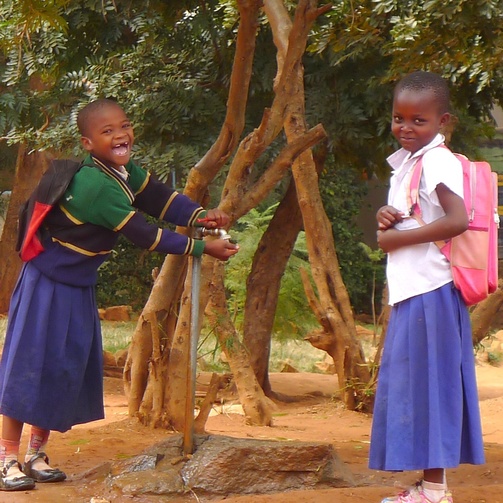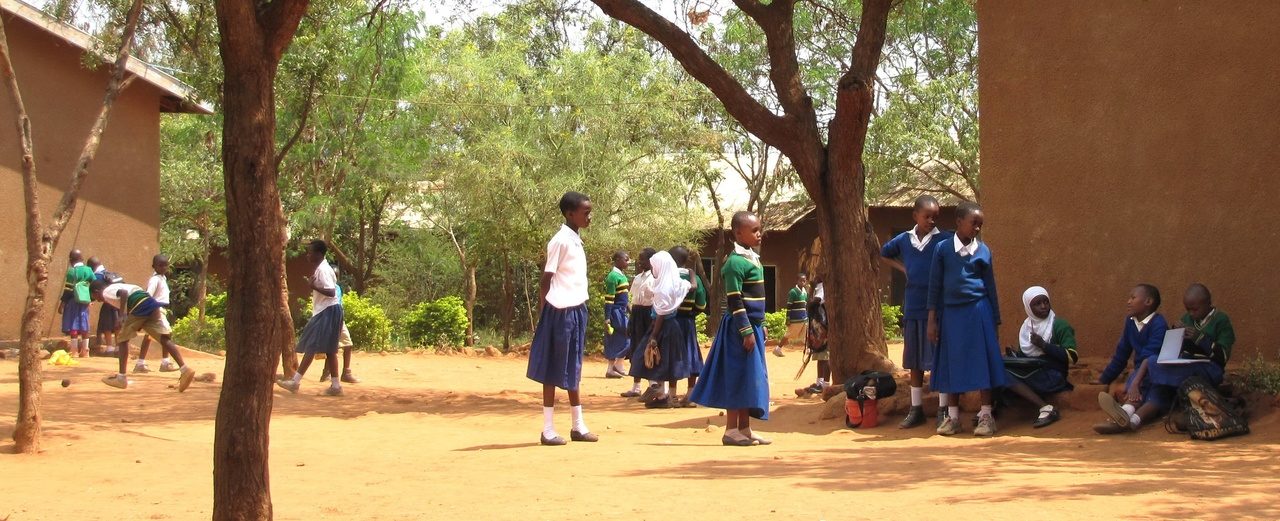 School toilets provide a future
School toilets provide a future
Improving sanitation at schools
Faith likes going to school. Learning is easy for her and every morning she looks forward to meeting her friends in class. But since she has her period, the 13-year-old has been staying at home a few days each month. Without functioning school toilets, she has no idea how she would make it through the long school day without risking unpleasant situations. Many girls in Tanzania are like Faith. The lack of toilets and washing facilities at school prevents many girls from attending classes regularly. This has an impact on their success at school and thus on their chances of achieving a good level of education. School toilets are therefore an important key to a better future for many girls, as they enable them to attend school longer and more regularly.
Necessity
Improved sanitary facilities for children at the Mramba Primary School.
Activity
Building school toilets with wash basins and conducting hygiene training courses.
Countable effort
Number of children that benefit from working toilets and wash basins at the Mramba Primary School.
Result
Reduction of infectious diseases and days out of school, particularly among girls.
Systemic effect
Improved educational and general prospects for pupils at Mramba Primary School, particularly for girls.
Background
Compared to the neighbouring countries of Kenya, Uganda and Rwanda, the sanitation situation in Tanzania, especially in rural areas, is significantly worse. According to UNICEF (2018), fewer than every tenth household in rural areas has its own sanitation facilities. Even at most schools there are not enough toilets and the few existing ones often do not even meet minimal requirements. For example, more than half of the schools have no doors at the girls’ toilets and 84 per cent of the Tanzanian schools, according to UNICEF reports, have no functioning hand washing facilities. This is also the case at Mramba Primary School. The public primary school is located in Mwanga, a rural, dry area at the foot of the Pare Mountains in north-eastern Tanzania. It is one of the few schools in the East African country that has a section for deaf children. The few existing toilets at the school are in a very dilapidated condition. Here also, doors and hand washing facilities are missing.
A further challenge is that often neither the children nor the teachers are aware of how important it is for their health to observe basic hygiene rules. As a result, many children still die from infectious diseases that can actually be avoided. According to UNICEF (2018), for example, improving sanitation and applying simple hygiene rules could prevent almost half of all cases of diarrhoea worldwide.
The good deed
With today's good deed you are contributing to the construction of new school toilets and washing facilities at Mramba Primary School. A hygiene training course for all pupils and teachers will also raise awareness of basic hygiene rules. Information boards with illustrated instructions on how to wash hands properly will remind students of the importance of hand hygiene at school and help reduce infectious diseases. Healthy development contributes to the educational success of these children. Last but not least, access to school toilets offers girls better prospects for the future. Faith can again go to school every day.

AboutTanzania
Dodoma
Capital
57,300,000
Number of inhabitants
2,655
Gross domestic product per capita per year
Placed 154 of 189
Human Development Index
With its impressive wildlife, the islands of Zanzibar and the snow-capped peak of Kilimanjaro, Tanzania is one of the countries in Africa with the most tourists. Mount Kilimanjaro is the highest mountain in Africa.
About the organization and further information
Association
PROBONO Schulpartnerschaften für Eine Welt e.V.
Website
https://www.probono-oneworld.de
Initiative Transparente Zivilgesellschaft

Further information and source
- Unicef, 2018. Water, sanitation and hygiene Tanzania. Budget Brief.
- Oni Lusk-Stover et al., 2016. Globally periods are causing girls to be absent from school.
- Human Rights Watch, 2017."I Had a Dream to Finish School". Barriers to Secondary Education in Tanzania.
- Konrad-Adenauer-Stiftung e.V., 2017. Falsche Versprechungen im tansanischen Bildungssektor.
- WASH in Schools, 2015. Youtube--Video "Menstrual Hygiene Management in Schools"




